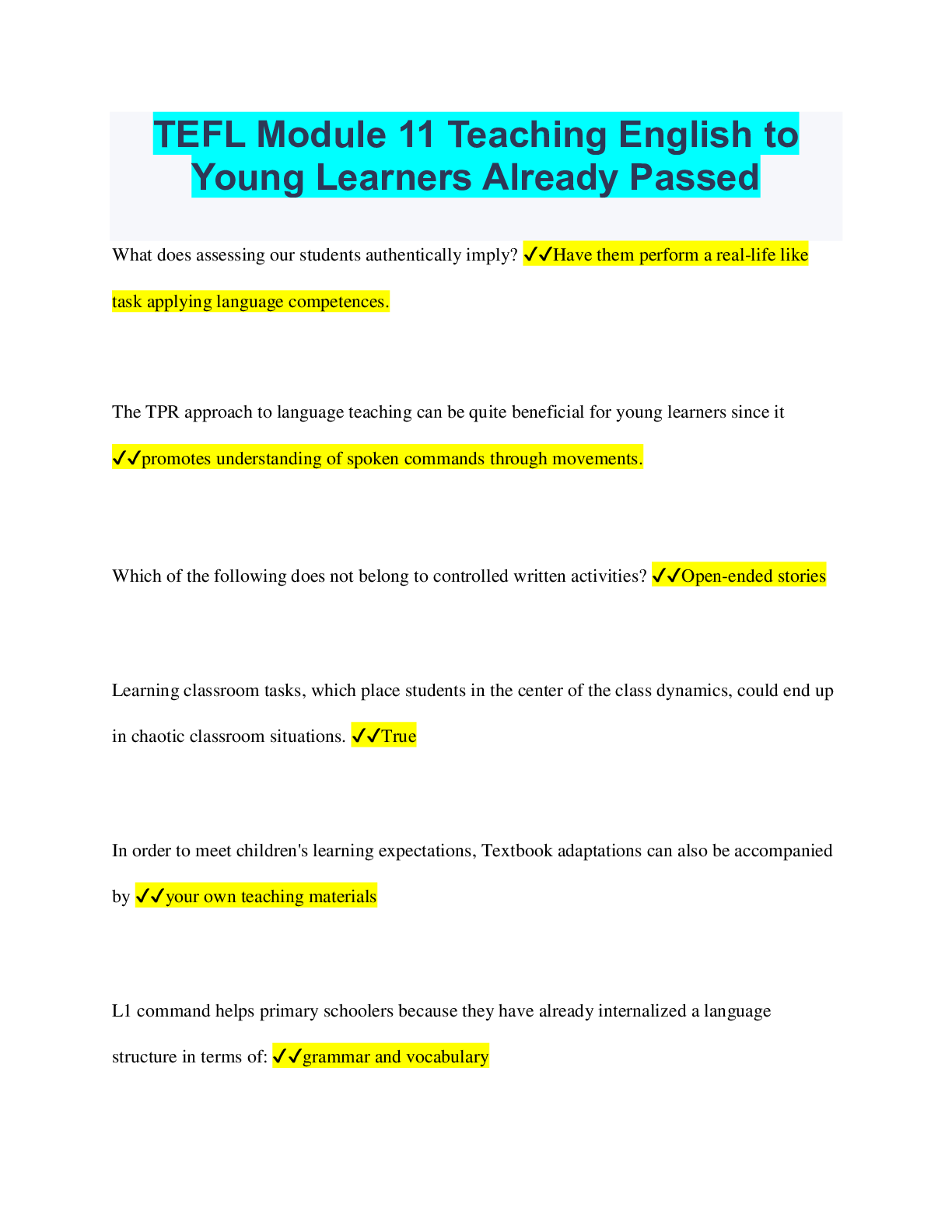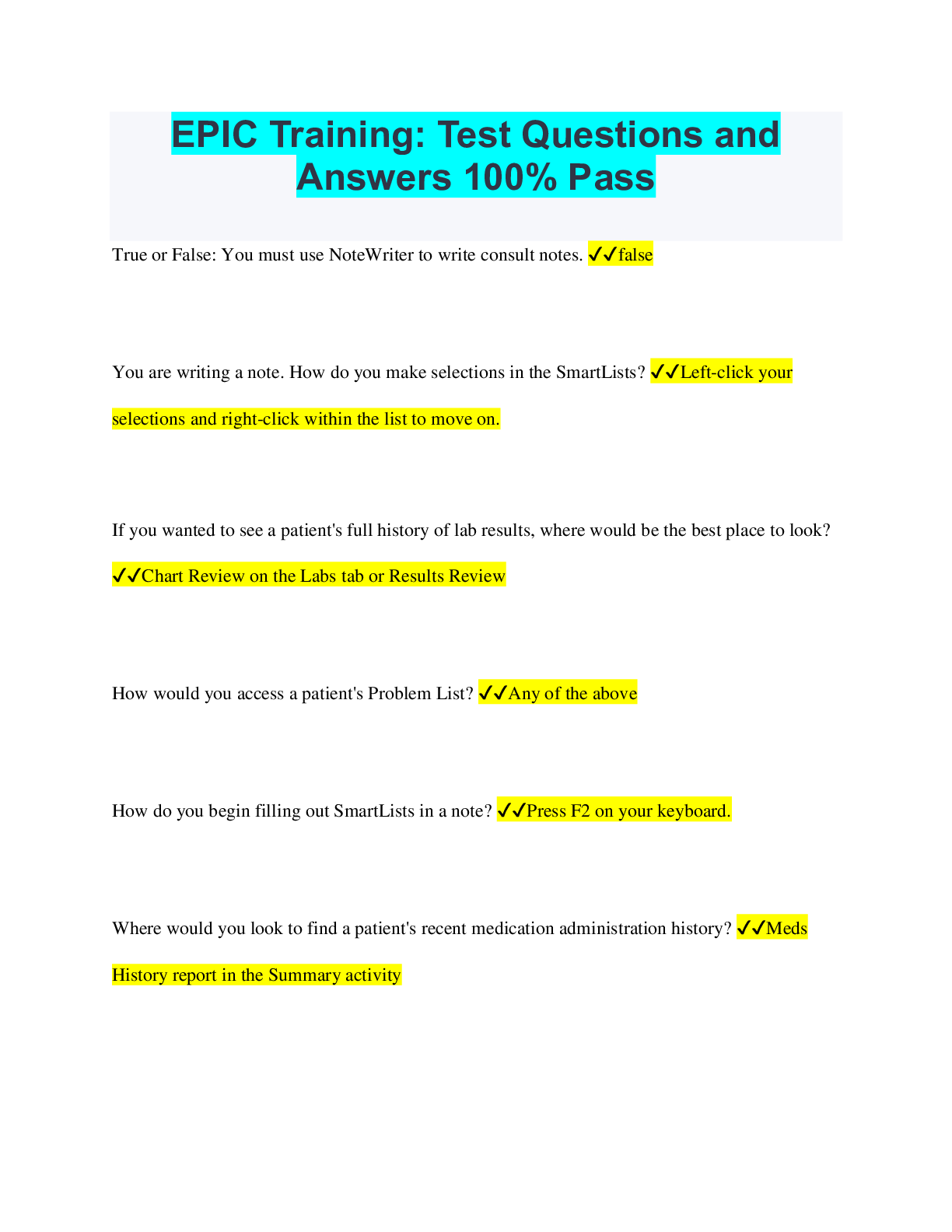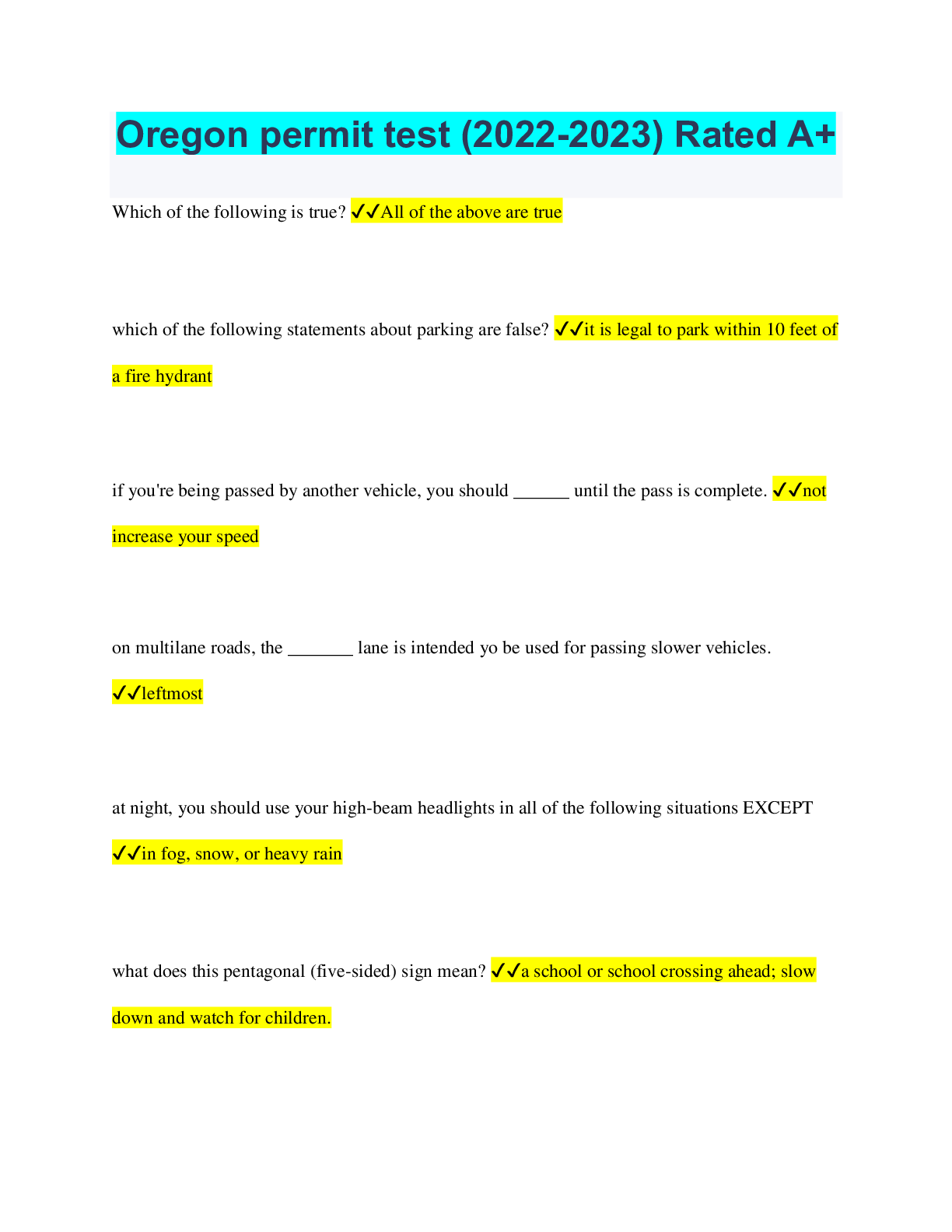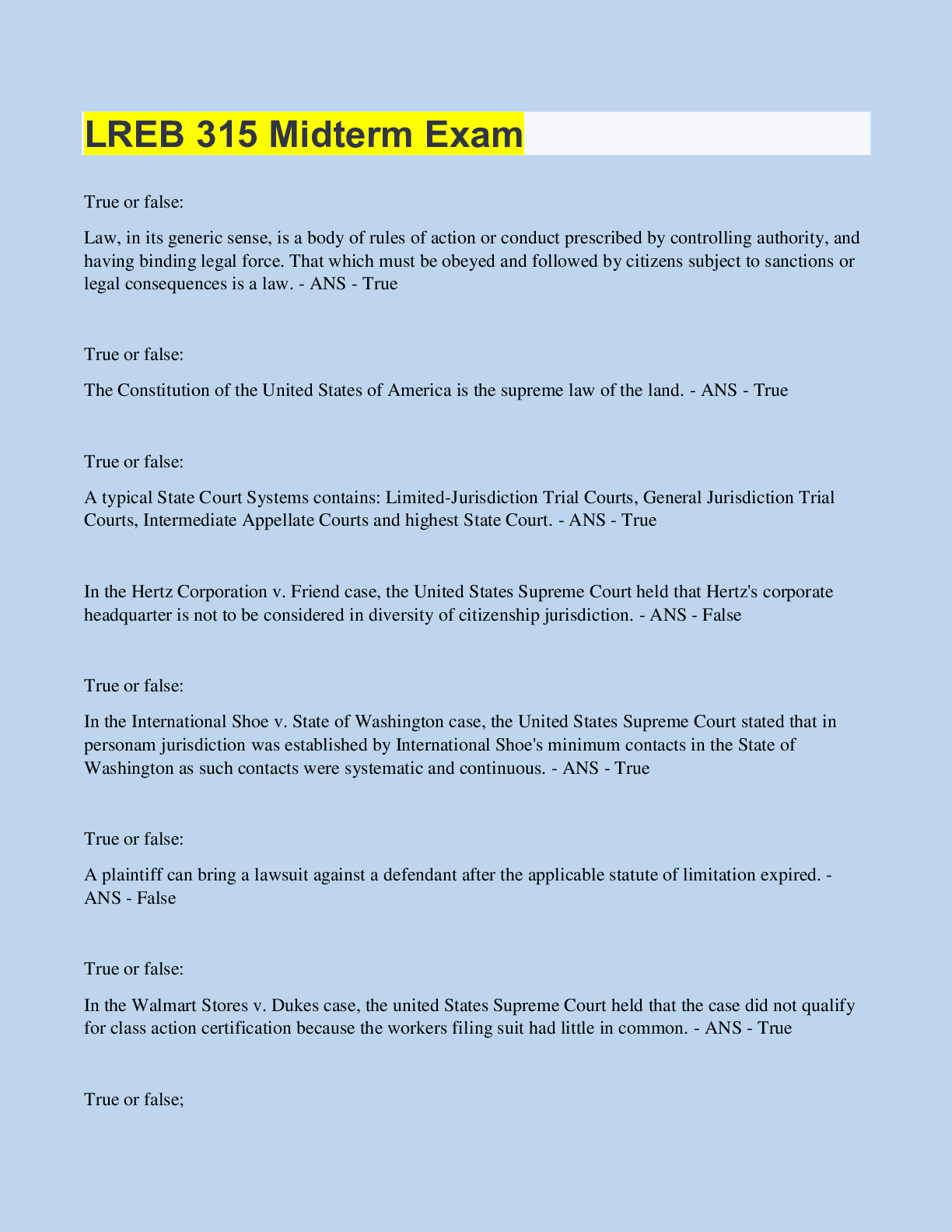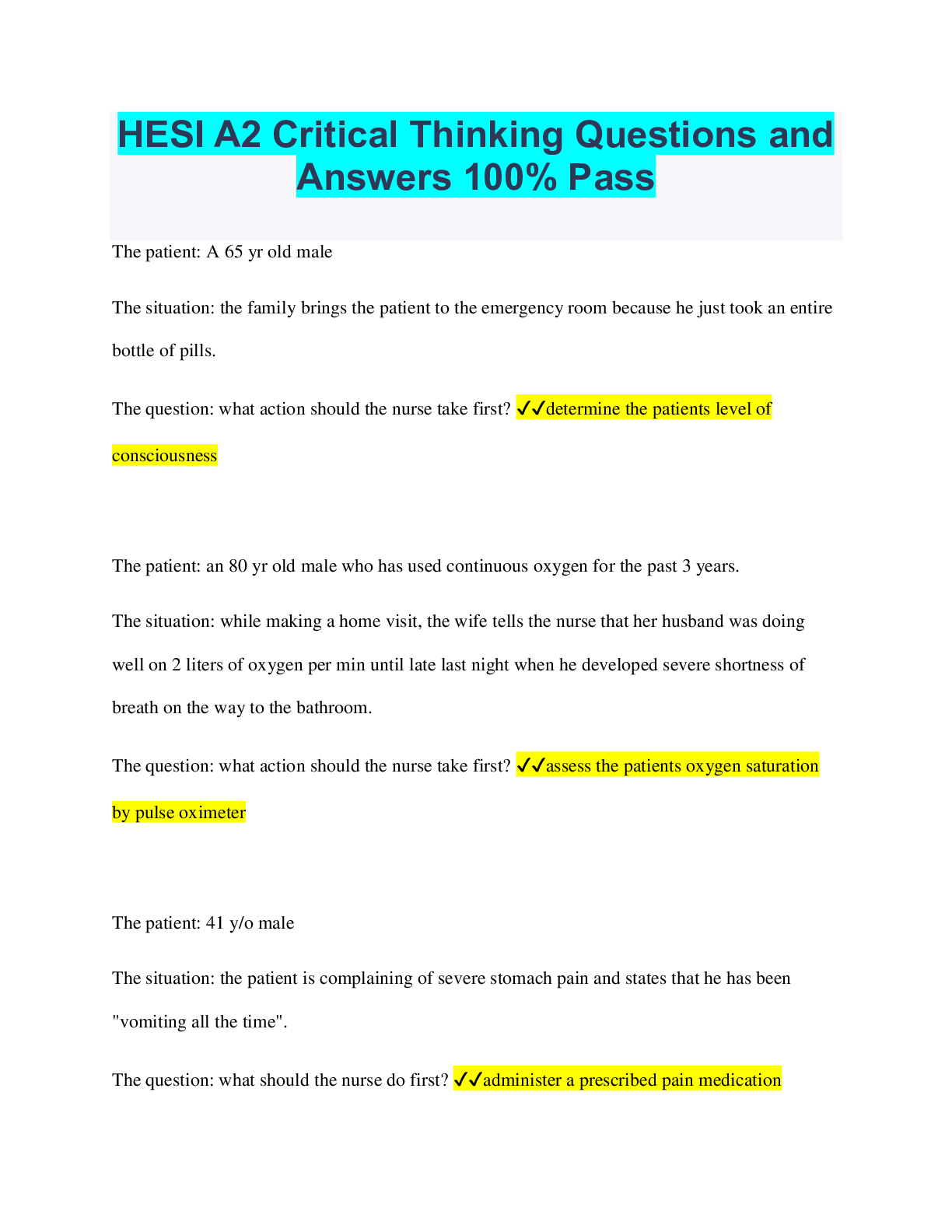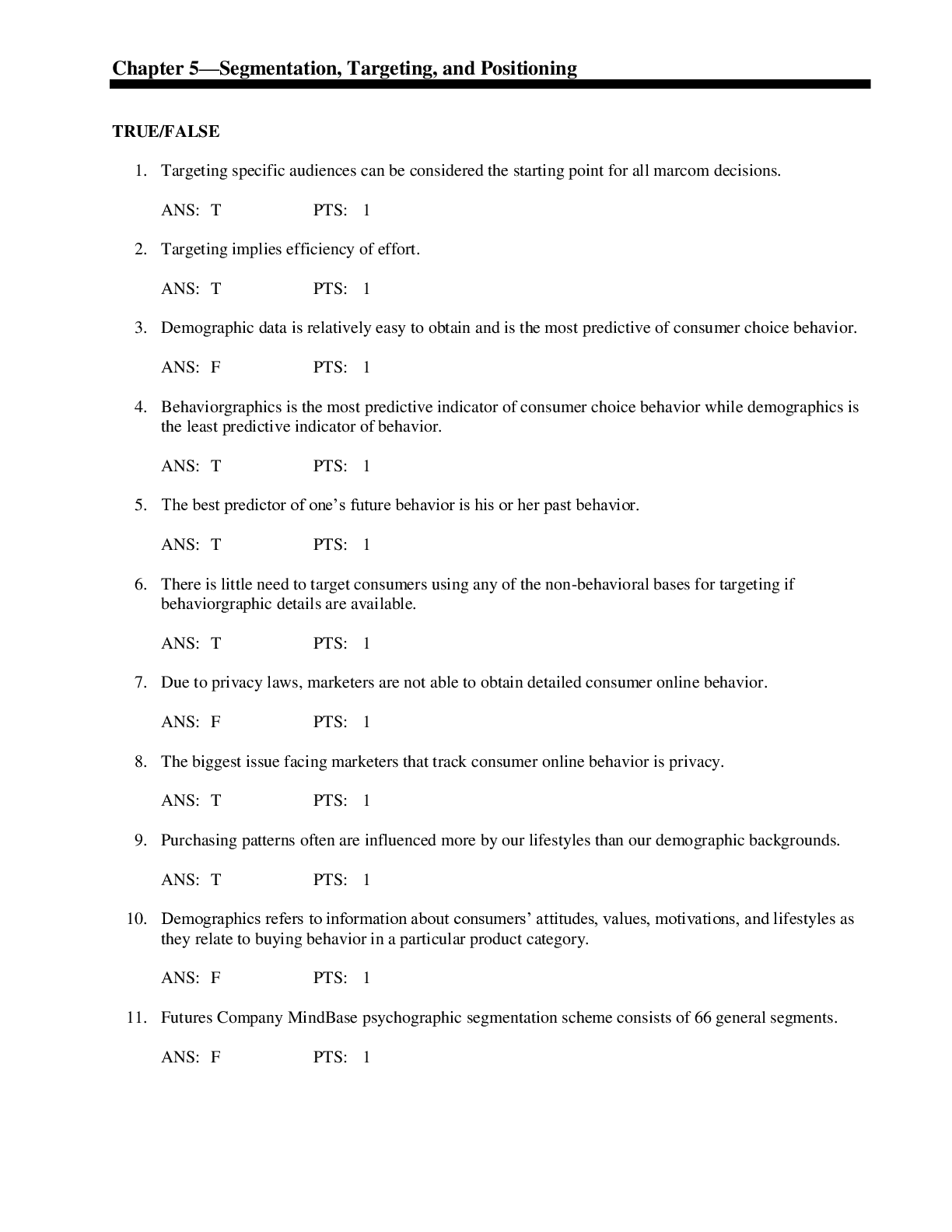History > QUESTIONS & ANSWERS > World History 10: The Enlightenment Questions and Answers Already Passed (All)
World History 10: The Enlightenment Questions and Answers Already Passed
Document Content and Description Below
World History 10: The Enlightenment Questions and Answers Already Passed The Enlightenment ✔✔An eighteenth century intellectual movement whose three central concepts were the use of reason, the... scientific method, and progress. Enlightenment thinkers believed they could help create better societies and better people. Their belief was strengthened by some modest improvements in economic and social life during the eighteenth century. 3 Central ideas of Enlightenment ✔✔1)Reason: The most important and original idea was that the methods of natural science could be used to examine and understand all aspects of life. Everything was to be submitted to rationalism. 2) Scientific Method: The scientific method was capable of discovering the laws of human society as well as those of nature. 3)Progress: The goal of Enlightenment thinkers to create better societies and better people by discarding outmoded traditions and embracing rationalism. Reason and Rationalism ✔✔The general opinion among Enlightenment thinkers that nothing should be accepted on faith and that everything should be subjected to secular critical examination. Emergence of Enlightenment ✔✔The new generation, between 1687(Newton's publication of "Principia") and 1715(the death of Louis XIV), tied the knot between the scientific revolution and created a new outlook on life. 3 main causes: 1) Thirty Year's War - Anti-religious sentiment 2) Pierre Bayle - Rise of Skepticism 3) Global Knowledge - Global knowledge about foreign cultures and customs. 4) John Locke - New theory on how human beings learn. Thirty Year's War ✔✔In the wake of the 30 Years War, many questioned religious truths and if they could be proved. The need for religious unity was also challenged. -Isaac Newton(+others) believed that they were explaining God's work, unlike during the Enlightenment Pierre Bayle ✔✔A famous French-Huguenot skeptic who found refuge in the Netherlands. Bayle critically examined past religious beliefs and persecutions in "Historical and Critical Dictionary". He concluded that nothing can ever be known beyond all doubt, a view known as skepticism. -Most famous advocate of skepticism Global Knowledge ✔✔The rapid growth of travel literature on non-European lands and cultures led to discoveries that all people had their very own beliefs and customs. Ex: In Europe a man bowed before a woman to show respect, while in Siam a man turned his back. They began to look at truth and morality in relative, rather than absolute, terms. John Locke ✔✔Locke's "Essay Concerning Human U [Show More]
Last updated: 2 years ago
Preview 1 out of 8 pages
.png)
Buy this document to get the full access instantly
Instant Download Access after purchase
Buy NowInstant download
We Accept:

Also available in bundle (1)
.png)
The Enlightenment Bundled Exams Questions and Answers 100% Pass
The Enlightenment Bundled Exams Questions and Answers 100% Pass
By Nutmegs 2 years ago
$18
14
Reviews( 0 )
$10.00
Can't find what you want? Try our AI powered Search
Document information
Connected school, study & course
About the document
Uploaded On
Feb 12, 2023
Number of pages
8
Written in
Additional information
This document has been written for:
Uploaded
Feb 12, 2023
Downloads
0
Views
105


